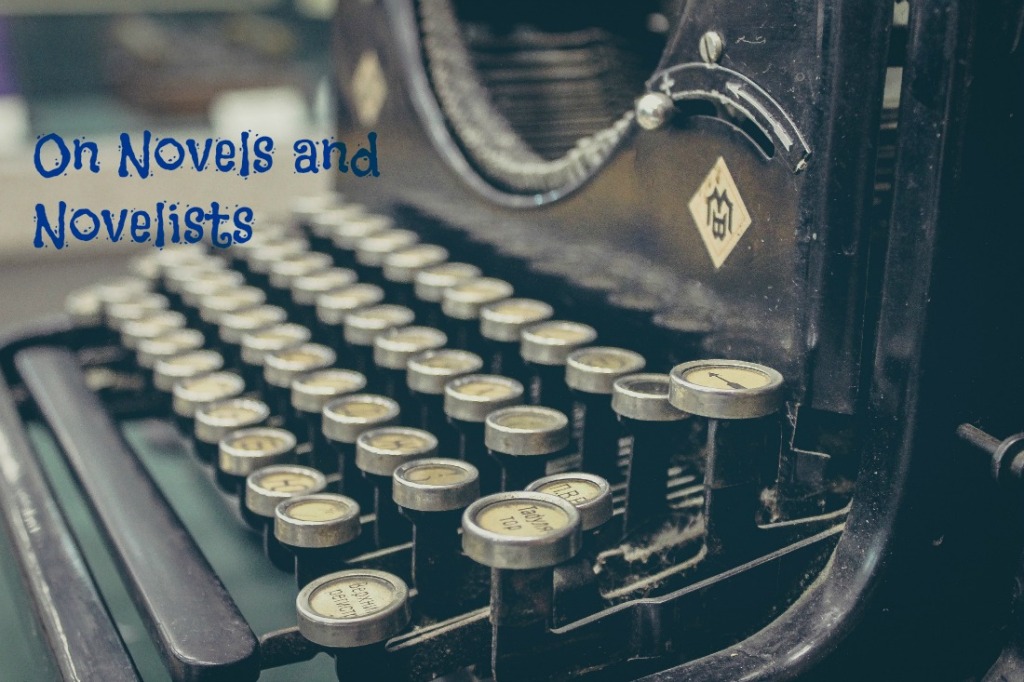Alexander Chee
Alexander Chee’s second novel, the recently published The Queen of the Night, is about “famous opera singer Lilliet Berne, following her as she survives brothels, prisons, and imperial palaces in Second Empire and Third Republic France.”
Here Nick Mancusi interviews Chee about Historical Fiction (“capital H capital F”), fiction in general, the source of characters and ideas, how this novel found its shape, and why it took 13 years to complete.
Novelist explains how psychology training honed his writing
Jonathan Kellerman is a clinical psychologist and the author of several compelling mystery novels featuring child psychologist Alex Delaware. The latest novel in the series is the recently published Breakdown. In this article he talks about his two professions:
“Psychology and fiction are actually quite synchronous,” he said. “But the truth is that writers of fiction are born, they aren’t made, and I was one of those kids who wrote compulsively from a very young age. It was always just something I loved to do. I won’t even call it a hobby because it’s more than that, it was just part of me.”
Maybe writing is in his genes. His wife, Faye Kellerman, is also a best-selling novelist. So is their son, Jesse, and their youngest daughter, Aliza, has published a novel cowritten with her mother. Eldest daughter Rachel also has a Ph.D. in clinical psychology, and second daughter Ilana is a graduate student in clinical psychology.
Asked what advice he’d give to aspiring writers, he answered:
“Be curious, experience life — and just write. I’ve no sympathy for people who say ‘I’d do it if I had time,’” he said. “The Talmud talks about setting a permanent place and time to study. Consistency counts. In the end, the secret of writing is to be a tortoise, not a hare.”
Michael Cunningham prefers shorter books with lots of voice
Michael Cunningham’s novel The Hours, based on Virginia Woolf’s book Mrs. Dalloway, won the 1999 Pulitzer Prize for Fiction. More recently, he has published A Wild Swan: And Other Tales, a collection of retellings of classic fairy tales.
In light of my recent discussions on this blog about Big Books, I was interested in his answer to the question of whether the length of a novel influences him as a reader:
No, because years ago I released myself from any obligation to finish a book, which was revelatory. I used to hesitate over an 800-page tome. If I didn’t like it then I would be sentenced to it for months and months. Now I fearlessly pick up a book of any length though I am a little more inclined to shorter ones. I’ve read some novels lately, popular ones, which should have been a third shorter. If a book needs to be 850 pages long, that’s how long it should be. Leo Tolstoy’s “War and Peace” is not too long. But there are some novels out there that are weighing in at 700 to 800 pages that shouldn’t. I’m a bit surprised there is a vogue for these long books when we don’t have any time.
Yes, that sums it up nicely.
10 Great Novels of the Rural
Author Michelle Hoover writes:
I tend to work with emotionally repressed personalities. I find their lack of communication fascinating. But repressed emotion needs its outlet, and so my landscapes not only mirror my character’s psyches but bear the displaced weight of the emotion itself.
Hoover compares her writing to that of Willa Cather, whose descriptive passages about the landscape often also depict the psychological make-up of her characters. Hoover adds that her recently published second novel, Bottomland continues this pattern. She offers a list of other novels, all of which take place in the U.S. and were published in the 21st century, that illustrate the same tradition of writing:
- Falling to Earth, Kate Southwood
- Gilead, Marilynne Robinson
- In the House Upon the Dirt Between the Lake and the Woods, Matt Bell
- The Known World, Edward P. Jones
- The Long Man, Amy Greene
- The Orchardist, Amanda Coplin
- Plainsong, Kent Haruf
- Salvage the Bones, Jesmyn Ward
- An Unseemly Wife, E.B. Moore
- Winter’s Bone, Daniel Woodrell
Jane Eyre and the Invention of the Self
Charlotte Brontë’s 1847 novel helped introduce the idea of the “modern individual”—a surprisingly radical concept for readers at the time.
Karen Swallow Prior, writing in The Atlantic, explains how Jane Eyre was the first novel to embody the modern concept of the self as an independent individual:
Brontë’s biggest accomplishment wasn’t in plot devices. It was the narrative voice of Jane—who so openly expressed her desire for identity, definition, meaning, and agency—that rang powerfully true to its 19th-century audience. In fact, many early readers mistakenly believed Jane Eyre was a true account (in a clever marketing scheme, the novel was subtitled, “An Autobiography”), perhaps a validation of her character’s authenticity.
“Unable to find her sense of self through others, Jane makes the surprising decision to turn inward,” Prior writes. The novel, with its emphasis on particular human experience, was the perfect vehicle “to shape how readers understood the modern individual.” Brontë’s creation of Jane Eyre came at a pivotal time in history, when external sources of authority were giving way to the concept of internal interpretations of one’s world.
The refusal of such a woman, who lived in such a time, to be silent created a new mold for the self—one apparent not only in today’s Instagram photos, but also more importantly in the collective modern sense that a person’s inner life can allow her to effect change from the inside out.

